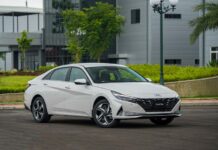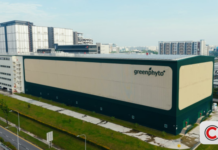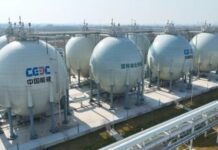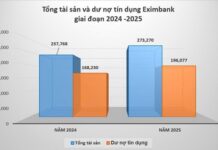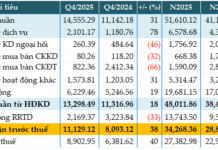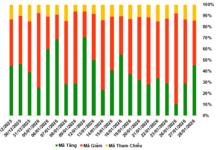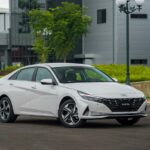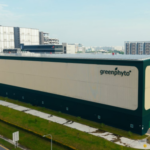In line with international practices
Regarding the draft Law on Special Consumption Tax (SCT) amendments, the Ministry of Justice recommends that the Ministry of Finance conduct a more comprehensive assessment to propose exempting certain taxable items from SCT.
Specifically, regarding gasoline, the Ministry of Justice argues that E5 and E10 gasoline, containing 5% and 10% bioethanol respectively, are used as inputs by many manufacturing industries. Therefore, levying SCT on these fuels may no longer be appropriate. The purpose of this tax is to guide consumption patterns; however, there are currently no alternative fuels to gasoline for production purposes, limiting consumer choices.
The Ministry of Agriculture and Rural Development shares a similar view, stating that E5 and E10 bioethanol gasoline cannot entirely replace fossil gasoline due to consumer habits and the advantages of the latter. Thus, a roadmap for the transition is necessary. Currently, gasoline is subject to both SCT and environmental protection taxes. The Ministry proposes considering reducing the tax rate for fossil gasoline while potentially adjusting the environmental protection tax rate accordingly to align with taxation objectives.
In response to the proposals from the aforementioned ministries, the Ministry of Finance explains that E5 and E10 gasoline are blends of 95% and 90% RON 92 gasoline, respectively, and 5% and 10% bioethanol. Fossil gasoline is a non-renewable fossil fuel, and its consumption should be moderated, which is why most countries impose taxes on it.
According to the Ministry of Finance, Vietnam has levied SCT on gasoline since 1995, and removing this tax is not feasible in the context of combating climate change and achieving net-zero emissions by 2050. The regulation aims to moderate consumption of items that should be used economically and is consistent with international practices.
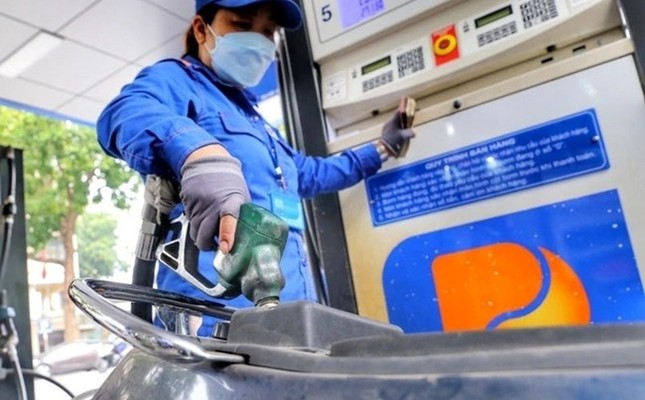
Several ministries propose eliminating the special consumption tax on gasoline. Image: NY.
Previously, the Vietnam Chamber of Commerce and Industry (VCCI) also suggested that the Ministry of Finance consider eliminating the special consumption tax on gasoline and air conditioners. VCCI argued that gasoline is subject to two taxes with a restrictive consumption nature: Special Consumption Tax and Environmental Protection Tax. Gasoline is not a luxury item, and imposing a special consumption tax on it also aims to protect the environment.
Proposal to exclude air conditioners from SCT
The Ministry of Justice suggests that air conditioners with a capacity of up to 90,000 BTU are common household appliances, particularly those with a capacity of 9,000 to 12,000 BTU, which are widely used in both urban and rural areas. Moreover, these appliances are now manufactured with inverter technology, making them energy-efficient.
The Ministry of Planning and Investment (MPI) shares a similar view, stating that air conditioners with a capacity of less than 18,000 BTU are considered basic appliances and are widely used. If the proposal to impose SCT on these items is retained, the MPI recommends that the Ministry of Finance include an assessment of the emission levels associated with their use and propose a suitable tax rate reduction.
VCCI also proposed eliminating the SCT on air conditioners, noting that 26 years have passed since this tax was imposed on the product. VCCI argues that the context has changed, and air conditioners have become commonplace, unlike in 1998 when they were considered luxury items.
However, the Ministry of Finance explains that air conditioners with a capacity of less than 90,000 BTU are significant energy consumers and contribute to global warming. Additionally, common refrigerants used in air conditioners, such as HFCs, deplete the ozone layer and cause environmental pollution.
The Ministry of Finance states that international experiences show that some countries still levy taxes on these appliances. For example, South Korea, India, and Norway impose taxes on HFCs used in air conditioners. In Europe, Spain prohibits setting air conditioners below 27 degrees Celsius, while in the UK, homeowners must obtain permits for installation and regularly undergo energy efficiency and performance checks. Therefore, it is necessary to continue taxing air conditioners with a capacity of less than 90,000 BTU to raise awareness about moderate consumption and promote energy conservation and environmental protection.
Surging Air Conditioner Sales: Beyond the Heat
Scorching heatwaves sweeping across the nation have sparked a surge in air conditioner sales, turning them into a dominant product category driving revenue for supermarkets and electronics stores, while demand for other items remains sluggish.

